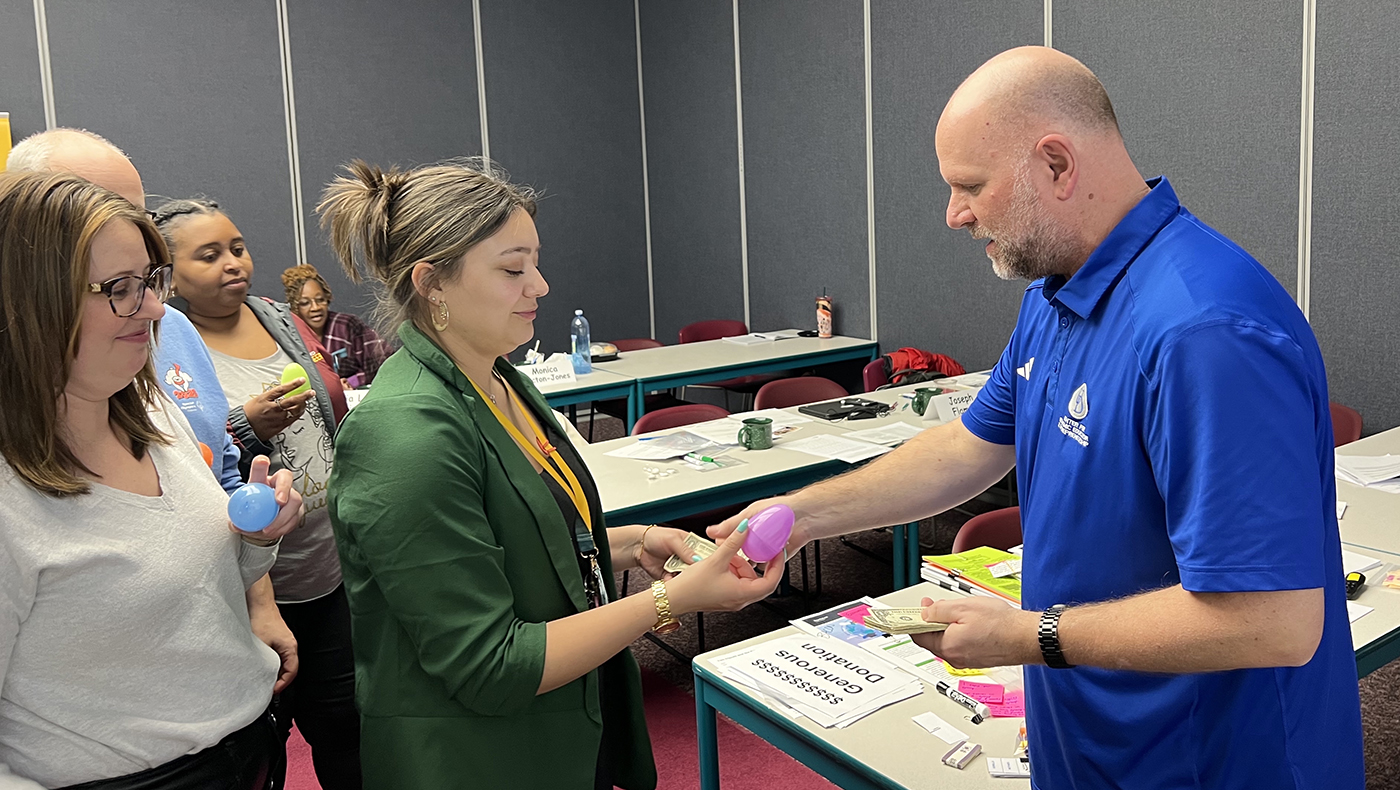This article was written by Kim Asarta.
Educators from across southern Delaware gathered at the Carter Partnership Center at Owens Campus in Georgetown, Delaware, for an engaging evening of hands-on professional learning hosted by the University of Delaware’s Center for Economic Education & Entrepreneurship (CEEE). Participants enjoyed a complimentary dinner sponsored by the Delaware Council on Economics Education with funding from Robinhood.
The workshop, titled Economics in Action: Ethics and the Environment, invited middle and high school teachers to explore ready-made lessons designed to help students understand why ideas of “right” and “wrong” are vital to economic decision-making. CEEE’s presenters Scott Bacon, assistant director, and Amy Krzyzanowski, instructional designer, emphasized critical thinking, guiding participants to evaluate real-world issues to teach Delaware’s economic standards.
Through activities and games, Bacon and Krzyzanowski sparked ideas for meaningful classroom discussions and new approaches to teaching complex topics. A strategy-based simulation on social responsibility helped educators examine business decisions involving costs, revenues, profits, volunteerism and charitable giving, bringing ethical choices to the forefront.
During the workshop, teachers analyzed income inequality using outcome-based, virtue-based, and duty-based ethical frameworks, using storytelling, visuals, and interactive tools. These multi-sensory strategies were praised for making ideas like negative externalities and fairness more tangible, especially for multilingual learners.
Games and simulations helped connect economic concepts to ethical and environmental issues; a smelly can of tuna allowed teachers to experience a negative externality firsthand, an egg hunt illustrated the importance of responsibly managing scarce resources, and three brief rounds of a production activity highlighted the tradeoffs businesses face when balancing productivity and social responsibility. These activities generated ideas for meaningful classroom lessons and helped educators rethink how to make economics more accessible. Elizabeth Pruneda, a 7th-grade teacher from Fred Fifer III Middle School, said, “The hands-on activities that help relay the concepts of economics are most beneficial. I myself find these concepts difficult sometimes, so these visuals and activities are immensely helpful.”
The event gave educators the chance to step into the role of learners, experiencing firsthand how to bring economics to life through ethics and real-world relevance. The workshop allowed educators to return to their classrooms equipped with lessons, strategies, and activities to inspire students to think critically and put economics into action.




